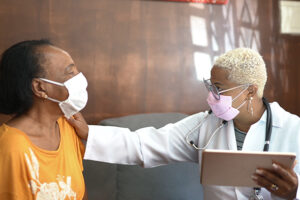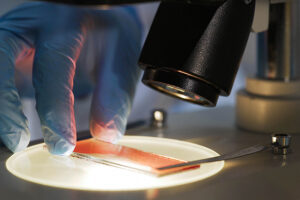Oncology
Chronic Myeloid Leukemia
Immune Recovery and Treatment-Free Remission in Chronic Myeloid Leukemia
Overview
For some—but not all—patients with chronic myeloid leukemia (CML), tyrosine kinase inhibitor (TKI) therapy produces deep remissions with immune restoration. As clinicians aim to achieve treatment-free remissions for more patients with CML, several strategies are of interest.
Expert Commentary
Gabriela S. Hobbs, MD
|
|
“Ideally, in clinical practice we would have tests to measure immune recovery and to predict whether a patient with CML will be successful with treatment discontinuation and will achieve treatment-free remission. We are not there yet, but I hope that one day we will be.”
There is no doubt that immune dysfunction is a feature of CML, just as it is with other hematologic malignancies. In fact, immune dysregulation is one of the factors that may permit a malignant clone to grow. With TKI therapy and the eradication of the CML clone, a form of immune restoration occurs, and the deep responses that we observe in some patients are predictive of successful treatment discontinuation.
However, the extent to which the immune system recovers normally in a patient on a TKI agent is unknown. Additionally, the ability to achieve a deep response with TKI therapy is, to a certain extent, an unmodifiable factor. That is, we cannot change whether a patient is going to achieve a deep remission with imatinib or dasatinib. What we do know is that a patient will be more likely to achieve treatment-free remission if they have been on a TKI for a long time, if they achieve and stay in a deep remission, and if they had low-risk CML from the start.
Ideally, in clinical practice we would have tests to measure immune recovery and to predict whether a patient with CML will be successful with treatment discontinuation and will achieve treatment-free remission. We are not there yet, but I hope that one day we will be.
Additionally, I think that it would be helpful to identify strategies that would assist patients in the recovery of their normal immune function. It would be wonderful, for instance, if we had studies showing that there is something that can be done in the first 6 months of being on TKI therapy to modulate the immune system (eg, interferon, checkpoint inhibition, or even diet and exercise) so that more patients would reach deep remissions. We do not have those data at this point, but I am optimistic. I tell my patients that being healthier overall and engaging in those wellness behaviors can allow them to better tolerate some of the side effects of treatment and complications that may arise from the CML.
Ultimately, there is a lot to learn about CML. Perhaps in the future we will be able to boost immune response–even if the treatment is initially more expensive. Or maybe someday we will be able to prescribe a treatment after we discontinue a patient’s TKI therapy that will help reconstitute the immune system, thereby enabling more individuals to stay off TKIs, which are costly therapies.
References
Brück O, Blom S, Dufva O, et al. Immune cell contexture in the bone marrow tumor microenvironment impacts therapy response in CML. Leukemia. 2018;32(7):1643-1656. doi:10.1038/s41375-018-0175-0
Hsieh Y-C, Kirschner K, Copland M. Improving outcomes in chronic myeloid leukemia through harnessing the immunological landscape. Leukemia. 2021;35(5):1229-1242. doi:10.1038/s41375-021-01238-w
Hughes A, Yong ASM. Immune effector recovery in chronic myeloid leukemia and treatment-free remission. Front Immunol. 2017;8:469. doi:10.3389/fimmu.2017.00469
Sitlinger A, Brander DM, Bartlett DB. Impact of exercise on the immune system and outcomes in hematologic malignancies. Blood Adv. 2020;4(8):1801-1811. doi:10.1182/bloodadvances.2019001317
Ureshino H. Treatment-free remission and immunity in chronic myeloid leukemia. Int J Hematol. 2021;113(5):642-647. doi:10.1007/s12185-021-03117-7











